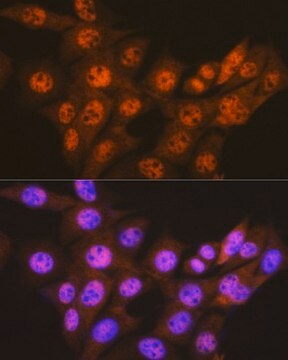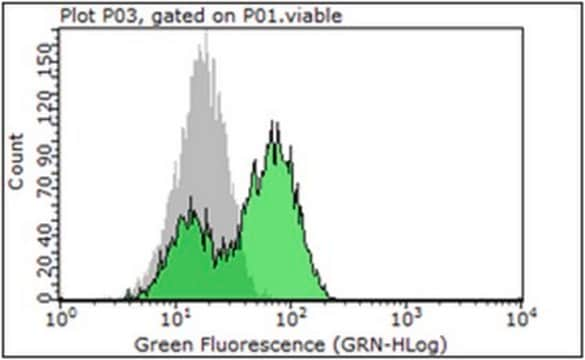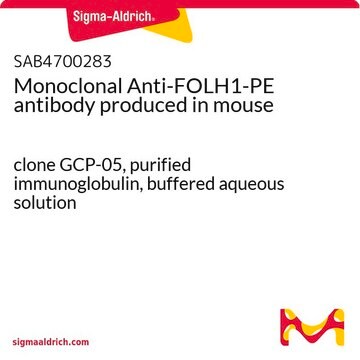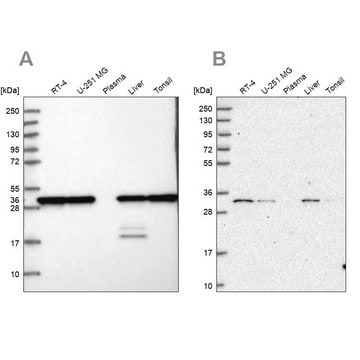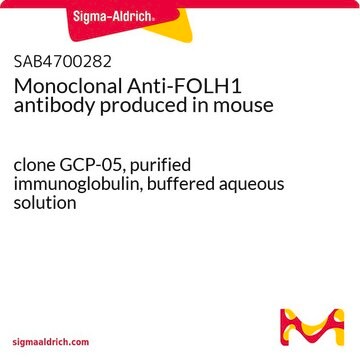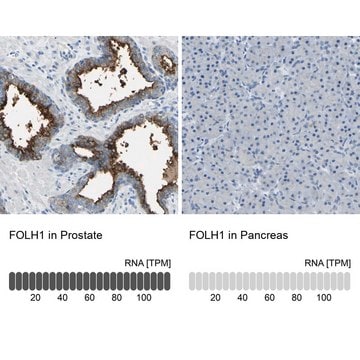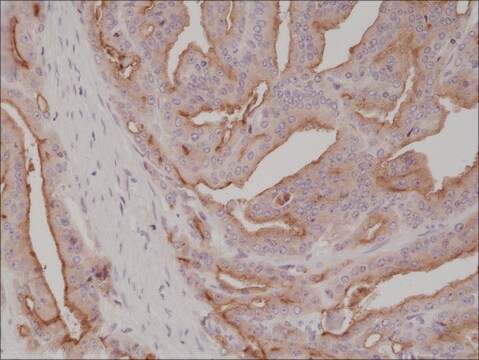Recommended Products
biological source
mouse
Quality Level
conjugate
unconjugated
antibody form
purified antibody
antibody product type
primary antibodies, primary antibodies
clone
3F11, monoclonal
mol wt
calculated mol wt 84.33 kDa
observed mol wt ~120 kDa
purified by
using protein G
species reactivity
mouse, human, rat, canine, porcine
packaging
antibody small pack of 100 μg
technique(s)
immunocytochemistry: suitable
immunofluorescence: suitable
immunohistochemistry (formalin-fixed, paraffin-embedded sections): suitable
western blot: suitable
isotype
IgG1κ
epitope sequence
Extracellular domain
UniProt accession no.
shipped in
ambient
target post-translational modification
unmodified
Gene Information
human ... FOLH1(2346)
General description
Specificity
Immunogen
Application
Evaluated by Western Blotting in LNCap cell lysate.
Western Blotting Analysis: A 1:1,000 dilution of this antibody detected PSMA in LNCap cell lysate.
Tested Applications
Immunofluorescence Analysis: A representative lot detected PSMA in Immunofluorescence applications (Novakova, Z., et al. (2017). Prostate. 77(7):749-764).
ELISA Analysis: A representative lot detected PSMA in ELISA applications (Novakova, Z., et al. (2017). Prostate. 77(7):749-764).
Immunohistochemistry (Paraffin) Analysis: A 1:80,000 dilution from a representative lot detected PSMA in human prostate tissues (Courtesy of Barinka, Institute of Biotechnology of the Czech Academy of Sciences, Vestec, Czech Republic and J. Hrudka, University Hospital Vinohrady, Prague, Czech Republic).
Immunohistochemistry Applications: A representative lot detected PSMA in Immunohistochemistry applications (Novakova, Z., et al. (2017). Prostate. 77(7):749-764).
Immunocytochemistry Analysis: A representative lot detected PSMA in Immunocytochemistry applications (Novakova, Z., et al. (2017). Prostate. 77(7):749-764).
Western Blotting Analysis: A representative lot detected PSMA in Western Blotting applications (Novakova, Z., et al. (2017). Prostate. 77(7):749-764).
Note: Actual optimal working dilutions must be determined by end user as specimens, and experimental conditions may vary with the end user
Physical form
Storage and Stability
Other Notes
Disclaimer
Storage Class Code
12 - Non Combustible Liquids
WGK
WGK 1
Flash Point(F)
Not applicable
Flash Point(C)
Not applicable
Certificates of Analysis (COA)
Search for Certificates of Analysis (COA) by entering the products Lot/Batch Number. Lot and Batch Numbers can be found on a product’s label following the words ‘Lot’ or ‘Batch’.
Already Own This Product?
Find documentation for the products that you have recently purchased in the Document Library.
Our team of scientists has experience in all areas of research including Life Science, Material Science, Chemical Synthesis, Chromatography, Analytical and many others.
Contact Technical Service